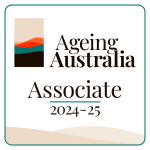RN Career Growth in Aged Care: New Opportunities for 2025

The Evolving Landscape of Registered Nurses in Australian Aged Care: Opportunities and Career Growth
In recent years, the aged care industry in Australia has undergone significant transformations, with Registered Nurses (RNs) emerging as pivotal leaders in this evolving sector. As the country grapples with an aging population and implements sweeping reforms, the role of RNs in aged care has become more critical than ever. This comprehensive analysis explores the expanding opportunities and career growth prospects for RNs in Australian aged care, driven by recent reforms and demographic shifts.
Background and Context
The role of Registered Nurses in aged care has evolved dramatically over the past few decades. Historically, RNs primarily served in supportive roles within aged care facilities. However, the landscape began to shift significantly following the Royal Commission into Aged Care Quality and Safety (2018-2021). This landmark inquiry shed light on the pressing need for enhanced clinical leadership and governance in aged care settings.
The Royal Commission’s findings catalyzed a series of reforms that have reshaped the aged care sector. One of the most impactful changes is the introduction of the new Aged Care Act, set to take effect in July 2025. This legislation mandates the presence of at least one RN on-site and on duty 24/7 in all residential aged care facilities, marking a significant shift in the industry’s approach to care delivery and clinical oversight.
The relevance of these changes becomes even more apparent when considering Australia’s demographic trajectory. Current projections indicate that by 2035, nearly 20% of the Australian population will be over 65 years old. This aging demographic is driving an unprecedented demand for skilled nursing care, particularly in specialized areas such as gerontology and palliative care.
The Current State of RNs in Aged Care
As of 2025, the aged care nursing workforce in Australia presents a dynamic and evolving picture:
Employment Statistics
According to the latest data from Jobs and Skills Australia, approximately 38,400 Registered Nurses are employed in the aged care sector nationwide. This workforce is characterized by a high rate of part-time engagement, with 51% of RNs working on a part-time basis. The gender distribution remains heavily skewed, with women comprising 88% of the RN workforce in aged care.
Wage Improvements
Recent years have seen significant improvements in remuneration for aged care nurses. In March 2025, a landmark 12% increase in award wages was implemented, addressing long-standing concerns about pay equity in the sector. This increase has resulted in the following hourly rates for RNs in aged care:
- Level 1 RNs: Up to $40.77 per hour
- Level 3 RNs: Up to $48.12 per hour
These wage improvements are part of a broader strategy to attract and retain skilled nursing professionals in the aged care sector.
Sector Size and Service Preferences
The aged care sector in Australia serves approximately 1.3 million individuals. A notable trend in recent years has been the shift towards home care services. While traditional residential aged care facilities continue to play a crucial role, there is a growing preference among older Australians to receive care in their own homes. This trend is reshaping the delivery of aged care services and creating new opportunities for RNs in community-based care settings.
Emerging Trends and Future Projections
The aged care sector is witnessing several emerging trends that are likely to shape the future of nursing in this field:
Increased Demand for Specialized RNs
As the complexity of care needs increases among the aging population, there is a growing demand for RNs with specialized skills. Geriatric specialists and advanced nurse practitioners are particularly sought after, reflecting the need for high-level clinical expertise in managing complex health conditions associated with aging.
Focus on Leadership and Clinical Governance
The new regulatory environment places a strong emphasis on clinical governance and leadership within aged care settings. RNs are increasingly expected to take on leadership roles, overseeing care delivery and ensuring compliance with quality standards. This trend is driving a need for RNs with strong management and leadership skills.
Growth in Home-Based Aged Care Services
The preference for aging in place is fueling growth in home-based care services. This shift is creating new opportunities for RNs in community outreach roles and telehealth services, requiring nurses to adapt their skills to deliver care in diverse settings beyond traditional facilities.
Integration of Digital Health Tools
The aged care sector is rapidly adopting digital health technologies. RNs are at the forefront of this digital transformation, utilizing remote monitoring tools, electronic health records, and telehealth platforms to enhance care delivery and improve patient outcomes.
Career Opportunities and Growth
The evolving landscape of aged care presents numerous career growth opportunities for RNs:
Clinical Leadership Roles
With the mandatory 24/7 RN presence in residential facilities, there is an increased demand for nurses in clinical leadership positions. Roles such as Clinical Care Coordinator and Director of Nursing are becoming more prevalent, offering pathways for career advancement.
Specialization in Gerontology
The complex care needs of the aging population are driving demand for RNs with specialized knowledge in gerontology. Pursuing additional qualifications in this area can open doors to advanced practice roles and consultancy positions.
Community Outreach and Telehealth Positions
The shift towards home-based care is creating opportunities for RNs in community nursing roles. These positions often involve a blend of in-person visits and telehealth consultations, requiring a diverse skill set that combines clinical expertise with technological proficiency.
Management and Administration
As the sector grows and becomes more complex, there is an increasing need for RNs in management and administrative roles. These positions involve overseeing care delivery, managing staff, and ensuring compliance with regulatory requirements.
Impact of Recent Reforms
The recent reforms in the aged care sector have had far-reaching impacts:
Improved Quality of Care
The mandatory presence of RNs around the clock has led to enhanced clinical standards in residential aged care facilities. Early reports indicate a reduction in hospital admissions for residents, as RNs are able to provide timely interventions and manage complex care needs on-site.
Workforce Sustainability
The combination of improved wages, clearer career pathways, and enhanced professional standing is contributing to better retention rates among aged care nurses. Additionally, these changes are attracting new entrants to the field, helping to address long-standing workforce shortages.
Challenges in the Aged Care Nursing Sector
Despite the positive developments, the sector faces several challenges:
Staffing Mandates and Recruitment Difficulties
While the 24/7 RN mandate is designed to improve care quality, some providers are struggling to meet these requirements due to workforce shortages, particularly in rural and remote areas.
Balancing Care Models
The sector is grappling with the challenge of balancing institutional care with the growing demand for home-based services. This requires a flexible workforce capable of adapting to different care settings.
Addressing Skill Demands and Workload Issues
The increasing complexity of care needs and the emphasis on clinical governance are placing new demands on RNs. Ensuring that the workforce has the necessary skills and support to meet these challenges is an ongoing concern.
Ensuring Consistent Care Quality
Maintaining consistent standards of care across different settings – from residential facilities to home care – remains a challenge that the sector is actively working to address.
How To Advance Your Career as an RN in Aged Care
For RNs looking to build a successful career in aged care, consider the following strategies:
- Specialize in Gerontology or Palliative Care: Pursue additional qualifications in these areas to enhance your expertise and marketability.
- Develop Technology Skills: Familiarize yourself with telehealth platforms, electronic health records, and remote monitoring tools.
- Pursue Leadership and Management Training: Look for opportunities to develop skills in clinical governance, team management, and quality improvement.
- Engage in Continuous Professional Development: Stay updated with the latest best practices in person-centered care and clinical interventions for older adults.
- Network Within the Aged Care Industry: Join professional associations, attend conferences, and participate in industry events to build connections and stay informed about career opportunities.
FAQ Section
Q1: What certifications can enhance an RN’s career in aged care?
A1: Certifications in gerontology, wound care, and palliative care are highly valued in the aged care sector. Additionally, qualifications in leadership and management can open doors to senior roles.
Q2: How is technology changing the role of RNs in aged care?
A2: RNs are increasingly using telehealth platforms for remote consultations, advanced electronic health record systems for care coordination, and remote monitoring devices to track patients’ health status at home.
Q3: What are the prospects for male RNs in the aged care sector?
A3: While currently underrepresented, male RNs have excellent opportunities in aged care. The sector is actively promoting diversity, and male nurses can bring valuable perspectives to care delivery and team dynamics.
Q4: How can RNs contribute to policy changes in aged care?
A4: RNs can join professional organizations like the Australian College of Nursing, participate in research initiatives, and engage with local health boards to contribute to policy discussions and reforms.
Q5: What strategies help RNs maintain work-life balance in aged care?
A5: Flexible scheduling options, accessing mental health support services, and practicing self-care are crucial. Many aged care providers are implementing wellbeing programs to support their nursing staff.
Ethical Considerations in Aged Care Nursing
RNs in aged care face unique ethical challenges that require careful consideration:
Maintaining Patient Dignity and Autonomy
Respecting the dignity and autonomy of older adults is paramount. RNs must balance the need for care and safety with the individual’s right to make decisions about their own life and care.
Addressing End-of-Life Care Decisions
RNs often play a crucial role in facilitating discussions about end-of-life care preferences. This requires sensitivity, clear communication, and a deep understanding of ethical and legal frameworks.
Balancing Family Involvement with Patient Privacy
Navigating the involvement of family members while maintaining patient confidentiality can be challenging. RNs must develop skills in mediating family dynamics and ensuring that the patient’s wishes and privacy are respected.
Ethical Use of Technology in Care Delivery
As digital health tools become more prevalent, RNs must consider the ethical implications of using these technologies, particularly in terms of data privacy and ensuring equitable access to care.
Success Stories
Case Study: NSW RACF’s Transition to Full-Time RN Staffing
A residential aged care facility in New South Wales implemented the 24/7 RN staffing model ahead of the July 2025 deadline. Within six months, the facility reported a 25% reduction in hospital transfers, improved medication management, and higher staff satisfaction rates. The presence of RNs around the clock enabled more timely interventions for deteriorating residents and enhanced the overall quality of care.
Queensland Aged Care Home’s Reduction in Hospital Admissions
A Queensland aged care home reported a 30% reduction in hospital admissions following the implementation of a comprehensive RN-led clinical governance program. The program included regular health assessments, proactive care planning, and enhanced staff training. RNs played a crucial role in identifying and managing health issues early, reducing the need for acute care interventions.
Tools and Resources for RNs in Aged Care
To support their evolving roles, RNs in aged care have access to a range of advanced tools and resources:
Advanced Electronic Health Records Systems
Modern EHR systems tailored for aged care settings allow for comprehensive care planning, seamless communication between care team members, and enhanced tracking of resident health outcomes.
Remote Patient Monitoring Devices
Wearable devices and smart home sensors enable RNs to monitor patients’ vital signs and activity levels remotely, facilitating early intervention and personalized care planning.
Clinical Decision-Support Software
AI-powered tools assist RNs in making evidence-based decisions about care interventions, medication management, and risk assessment.
Professional Development Tracking Apps
Mobile applications help RNs track their continuing education credits, set professional development goals, and access learning resources specific to aged care nursing.
Conclusion
The role of Registered Nurses in Australian aged care is undergoing a profound transformation. Driven by demographic shifts, regulatory reforms, and technological advancements, the sector offers unprecedented opportunities for career growth and professional development. RNs are increasingly recognized as essential leaders in delivering high-quality, person-centered care to older Australians.
As the industry continues to evolve, RNs have the opportunity to shape the future of aged care through clinical excellence, leadership, and innovation. For nurses considering a career in aged care, the sector offers a dynamic and rewarding path with diverse opportunities for specialization and advancement.
The challenges facing the aged care sector are significant, but so too are the opportunities for meaningful impact. By embracing continuous learning, leveraging technology, and focusing on person-centered care, RNs can play a pivotal role in elevating the quality of life for older Australians and advancing the standards of care across the sector.
Additional Resources
For RNs looking to further their careers in aged care, the following resources provide valuable information and support:
- Australian College of Nursing (ACN): Offers professional development courses and advocacy for nurses in aged care.
- Aged Care Quality and Safety Commission: Provides guidelines on quality standards and best practices in aged care.
- Department of Health and Aged Care website: Offers up-to-date information on aged care reforms and funding initiatives.
As the aged care landscape continues to evolve, Registered Nurses stand at the forefront of a sector poised for significant growth and innovation. The future of aged care in Australia is bright, with RNs playing a central role in shaping a more responsive, dignified, and high-quality care system for older Australians.









